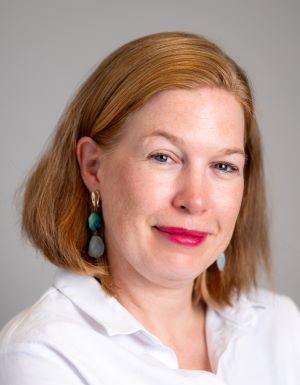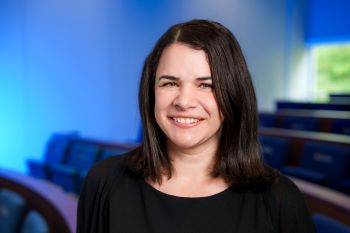Resilience of organizations

Five questions Stefanie Beninger
1. Isn’t ‘resilience’ a bit of a buzzword today?
“It certainly is, but there’s a reason for that. Before the COVID19 pandemic, businesses already faced major unexpected challenges, but that uncertainty has only exploded since the pandemic. To ensure a sustainable future as a business – and as a society – we will have to learn more about the success factors for resilience.
"Remarkably, little research has been done into this phenomenon from a systems perspective."
Remarkably, little research has been done into this phenomenon from a systems perspective. We aim to fill that gap with our research at Nyenrode, with a focus on the resilience of the system to which an organization belongs.”
2. How would you explain this systems approach?
“A company doesn’t exist in a vacuum: it’s part of a complex network of clients, suppliers, competitors and society at large. Your resilience is also made or broken in relation to, and interconnected with, to other actors within the system. By looking at this entire network, the system, we can build better and more comprehensive views of how resilience works. Which decisions in the system have a positive or negative impact? Which resources and capacities are needed to deal with disruptions in the system? Which actions – and by whom – best limit the consequences of the disruption?”
3. How do you conduct research into resilience?
“We opted for a qualitative study over a longer period. I want to hear from as many players in the system as possible to learn how they deal with disruptions. We collect best practices and use them to draw up propositions that we can test in different systems. Even though there are major differences between systems, we will observe common themes that contribute to resilience.
"It’s the same for you as an individual: savings, a good relationship with your neighbours, people in your network who can help in bad times; the same thing applies to businesses."
For example, it helps to have access to sufficient resources. Not just financial resources, but also human resources or social resources. It’s the same for you as an individual: savings, a good relationship with your neighbours, people in your network who can help in bad times; the same thing applies to businesses.”
4. Why the focus on small and medium-sized enterprises?
“Mainly because they aren’t just vulnerable to major disruptions like climate change, technological developments and the consequences of international conflicts, but also minor disruptions like an entrepreneur’s illness or a defective machine. Some disruptions play out over the short term, while others have a more long-term impact.
In a previous study, we interviewed 70 entrepreneurs in a single neighbourhood. Based on that input, I was able to gain insight into which disruptions could occur, how they responded individually or as a group, and how that enhanced their resilience at a community and business level. In another study where I investigated 30 small shops in a street in Myanmar, we discovered how relevant it can be when competitors work together when a disruption occurs.”
"My slogan for this research program: resilience is needed to not just to survive, but to thrive. The world will remain much more volatile, and we will have to learn how to deal with it."
5. Why is it important to conduct this research at Nyenrode?
“If we have a better theoretical understanding of resilience, we can focus on how to build it; that’s my firm conviction. That’s why my slogan for this research program is: resilience is needed to not just to survive, but to thrive. The world will remain much more volatile, and we will have to learn how to deal with it.
"By enhancing your resilience, you can work on building a sustainable future for your own business and for the system you are a part of, and eventually on a sustainable world as well."
At Nyenrode, we train responsible leaders of the future. For them, it’s important to understand what you can do to enhance the resilience of your organization and your organization’s network. Learning how to deal with uncertainties and offering perspectives for action is important in our education, and our research can contribute to that.
These insights are also relevant for policymakers: how do enterprises and the networks around them work together to become stronger? In the end, it’s about the competitive advantage of our entire economy. By enhancing your resilience, you can work on building a sustainable future for your own business and for the system you are a part of, and eventually on a sustainable world as well.”
About Stefanie Beninger
Dr. Stefanie Beninger is an Associate Professor of Marketing at Nyenrode Business University and a 4.TU Resilience Scholar. She is a member of the Marketing & Supply Chain Management.
Beninger holds a PhD in Marketing from Simon Fraser University (Canada) and an MBA from Nyenrode Business University. She has also obtained Executive Education certificates from Harvard Business School and Kellogg School of Management.
Support our research for a sustainable world
Would you like to join us in contributing to a sustainable world? Then please donate to Stichting Nyenrode Fonds (Nyenrode Fund Foundation), so that we can continue to finance studies like these. We are a private university, and do not receive funding from the government. We depend entirely on private donations from our community.
With your support, we can appoint a young academic professional to conduct this research. By supporting us, you can help Nyenrode while offering young talent the chance to take the next step in their academic career.
Contact
-
Christina Ceulemans
Job title Sr. relations manager fundraiserPhone number +31 (0) 682 607 913Email address Send me an email

